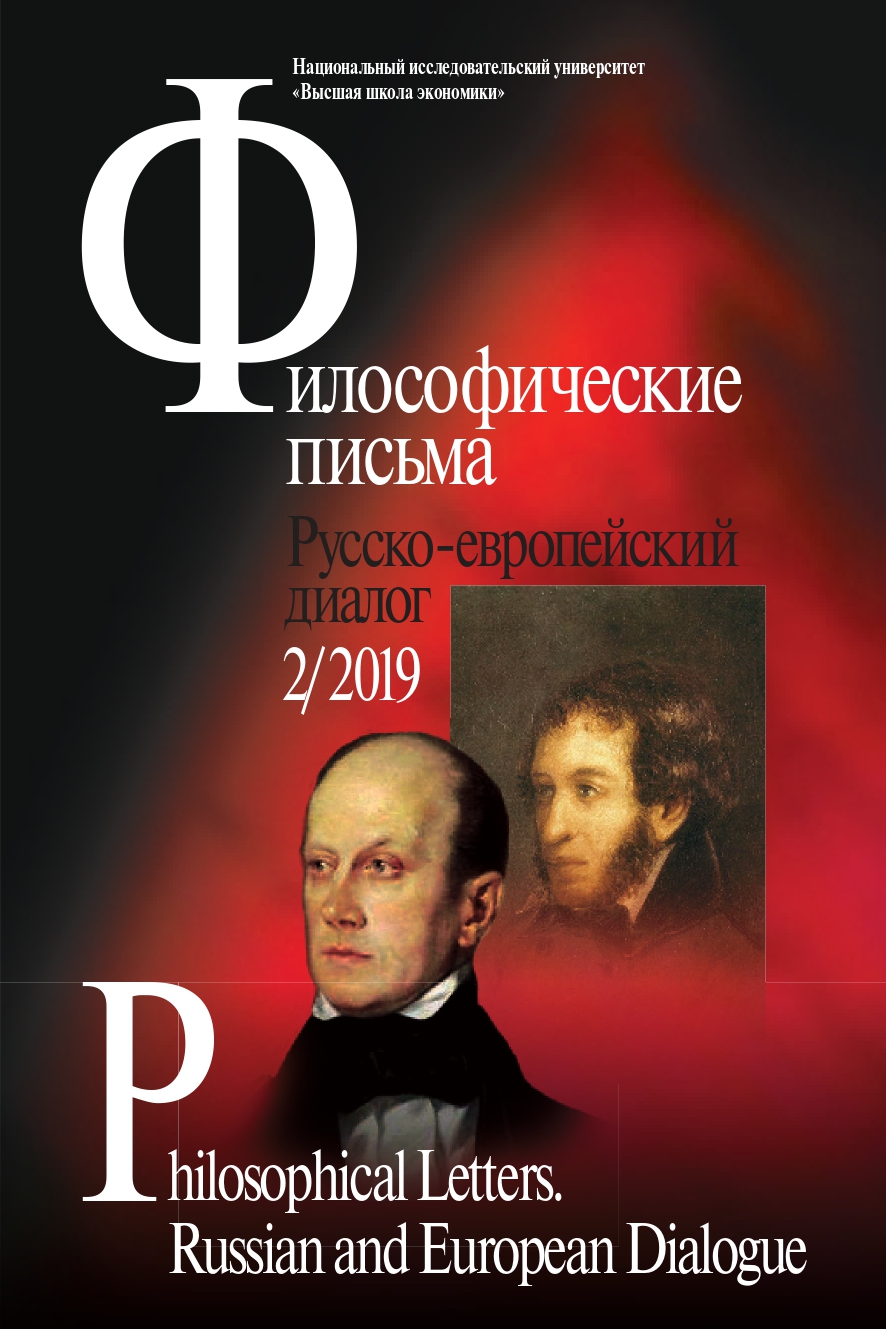Anti-christian Nationalism and the Fates of Cultural Traditions in Europe in the 1930s: the Evidence from Ellis' (Lev Kobylinskii’s) Letters to Nikolai Zaretskii
Abstract
The premonition of a war that would come in the near future was widespread in Europe in the 1930ies, and D. S. Merezhkovskii’s “Atlantis — Europe” appeared as one sign of such eschatological evidence in the eyes of the Russian emigration. However, for those representatives of Russian culture in emigration who belonged to the type of “Russian European” and were closely associated with the Russian-German dialogue of cultures, the triumph of the national-socialist ideology in Germany was perceived as a “double loss”. The German situation seemed
to be caused by the expression of extreme nationalism and neo-paganism and was compared with the previous triumph of Bolshevism in Russia, in particular, because of its anti-Christian character.
The article considers the position of the symbolist poet, translator and publicist Ellis (Lev Kobylinskii) in relation to National Socialism on the basis of his unpublished letters to the artist Nikolai Vasilyevich Zaretskii. The political situation in which he saw confirmation of the eschatological views of Vl. Solov’ev created conditions in which the continuation of his works, based on the study of the tradition of German-Russian spiritual intercourse, turned out to be impossible. Ellis assesses the events of the mid-1930s, noting the need to consolidate Christian culture and perceiving the role of Russian participation in the European tradition.

